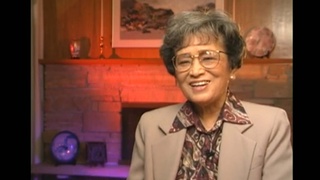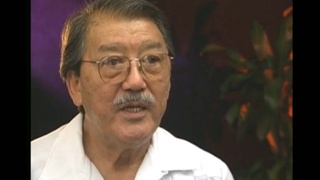Interviews
On hearing of CWRIC selection from Senator Inouye
I had no reaction one way or the other. Really, I didn’t. I did not call the senator back, and I know [US Senator] Dan [Inouye] probably remembers (chuckles) my failure to call him back, but the reason was simply this, one of the reasons [is] I did not use my judge’s telephone system to make toll calls chargeable to someone else. I want to keep that record clean.
I know this may sound [like I’m] being overly sensitive, but you got to, because, otherwise, people will pick on you that you use the municipal system for private business or non-municipal affairs. So I did not call Dan back. Now, yes, I could have gone to a public phone, but by the time I finished my day at work, and I would go to a public phone, I’m sure Dan’s office would be closed. And that situation just continued on and on. I never called Dan and acknowledged the fact that he was instrumental, which I believe he was.
I’m not sure that he was instrumental in having me appointed to the commission [Commission on Wartime Relocation and Internment of Civilians].
Date: August 27, 1998
Location: Pennsylvania, US
Interviewer: Darcie Iki, Mitchell Maki
Contributed by: Watase Media Arts Center, Japanese American National Museum
Explore More Videos

Getting Jim Wright to sponsor the bill
(b. 1931) U.S. Former Secretary of Transportation

Positive experiences with Asian Americans for Action
(1924-2018) Researcher, Activist

Redress payments to Issei who did not enter camps
(1924-2018) Researcher, Activist

Waiting for the right time to start Redress Movement
(1924-2018) Researcher, Activist


The unheralded help from beyond the community
(1917 - 2004) Political activist


Need for Monetary Compensation
(1923–2008) One of the leaders behind the redress movement.

Erasing the Bitterness
(1923–2008) One of the leaders behind the redress movement.





Appointing John Tateishi as National JACL Redress Chair
(1917 - 2004) Political activist

Inouye’s strategy for educating the American public
(1917 - 2004) Political activist
